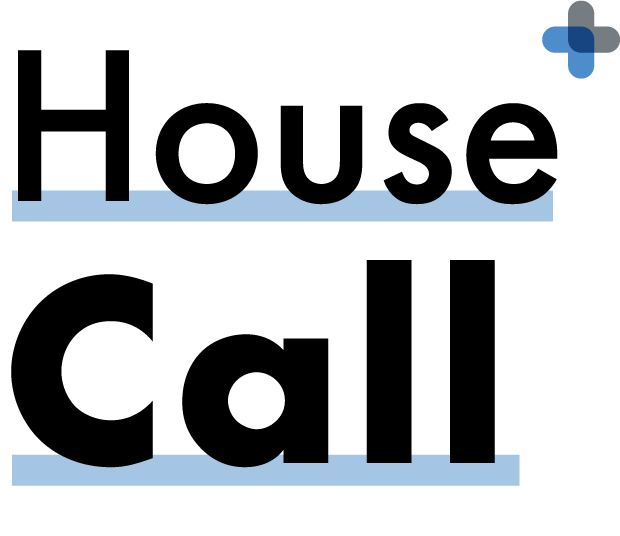
A new program at UH
seeks to transform Houston
neighborhoods’ health by taking
health care back to its roots.
By Sam Eifling
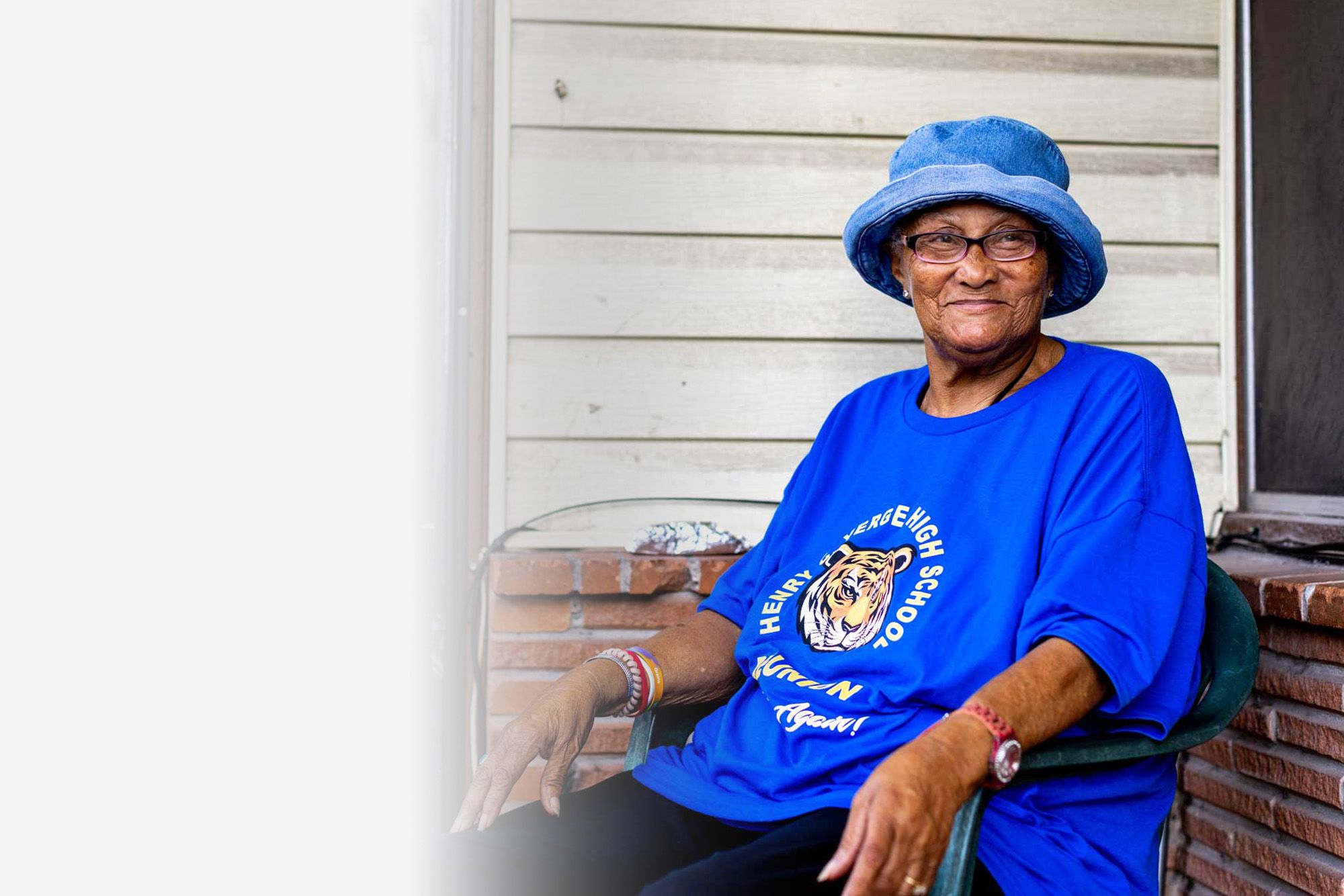

A new program at UH seeks to transform Houston neighborhoods’ health by taking health care back to its roots.
By Sam Eifling
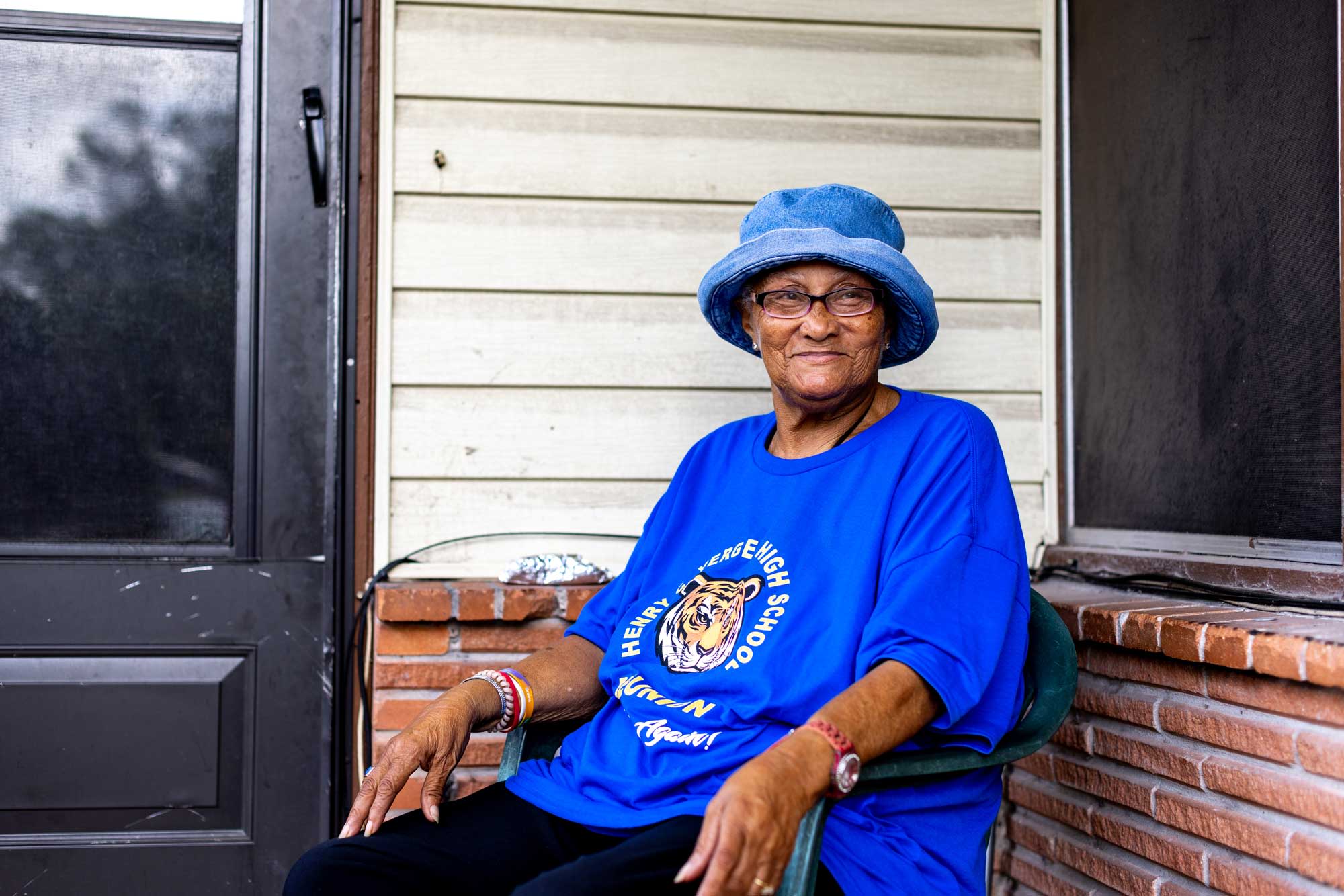
Diamondneshay Ward one day plans to become a physician, providing community care in a place of need, such as her hometown of New Orleans. First, however, the third-year medical student at the University of Houston’s Tilman J. Fertitta Family College of Medicine has to figure out how to make sure a lower-income Houston resident can get a pair of eyeglasses.
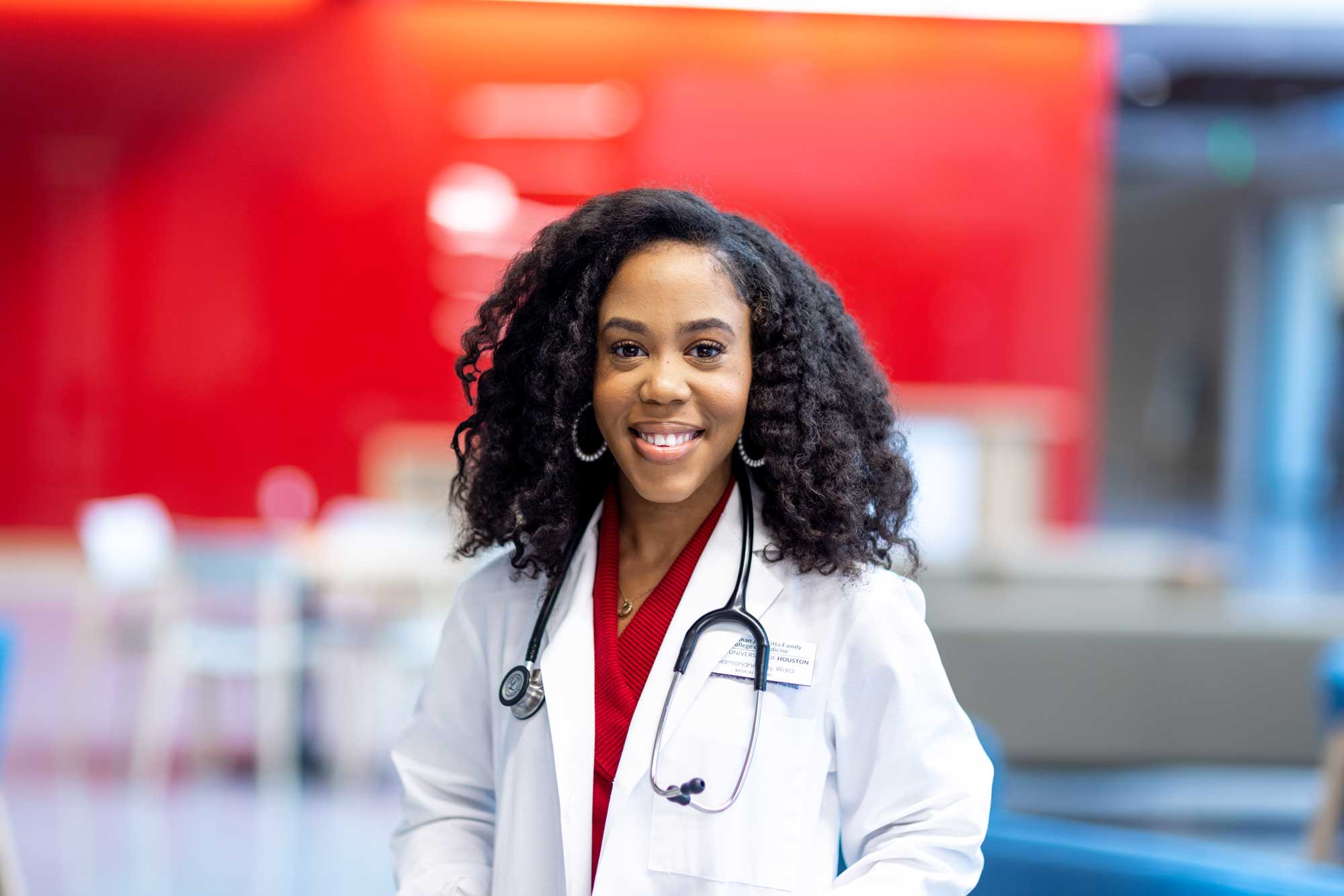
Diamondneshay Ward is a third-year medical student and an active participant in Household-Centered Care.
Diamondneshay Ward is a third-year medical student and an active participant in Household-Centered Care.
Ward is part of a cohort of around 200 students who are participating in a new program at the University that aims to bring students of medicine, nursing and social work together to offer community-level support to families in Houston’s East End and Third Ward, two neighborhoods near the University that tend to see poor health outcomes among their residents.
The Household-Centered Care program, or HCC, partners students to collaborate and offer assistance in a wide variety of forms. UH partners with community health workers, who are important liaisons connecting the students with the community. They’re focusing on what’s called social health, with an approach to care that enables them to learn about and consider a person’s environment, behaviors, diet and means.
On a day in January, Ward’s team assisted a client in getting a vision checkup and some glasses (done with an assist from the UH College of Optometry). The client also wanted to lose some weight. Ward talked with her about some of the challenges she faced in getting physical activity in her small home. Together they decided to start gradually, with a plan to spend 15 minutes each morning lifting light weights while watching tutorials on YouTube.
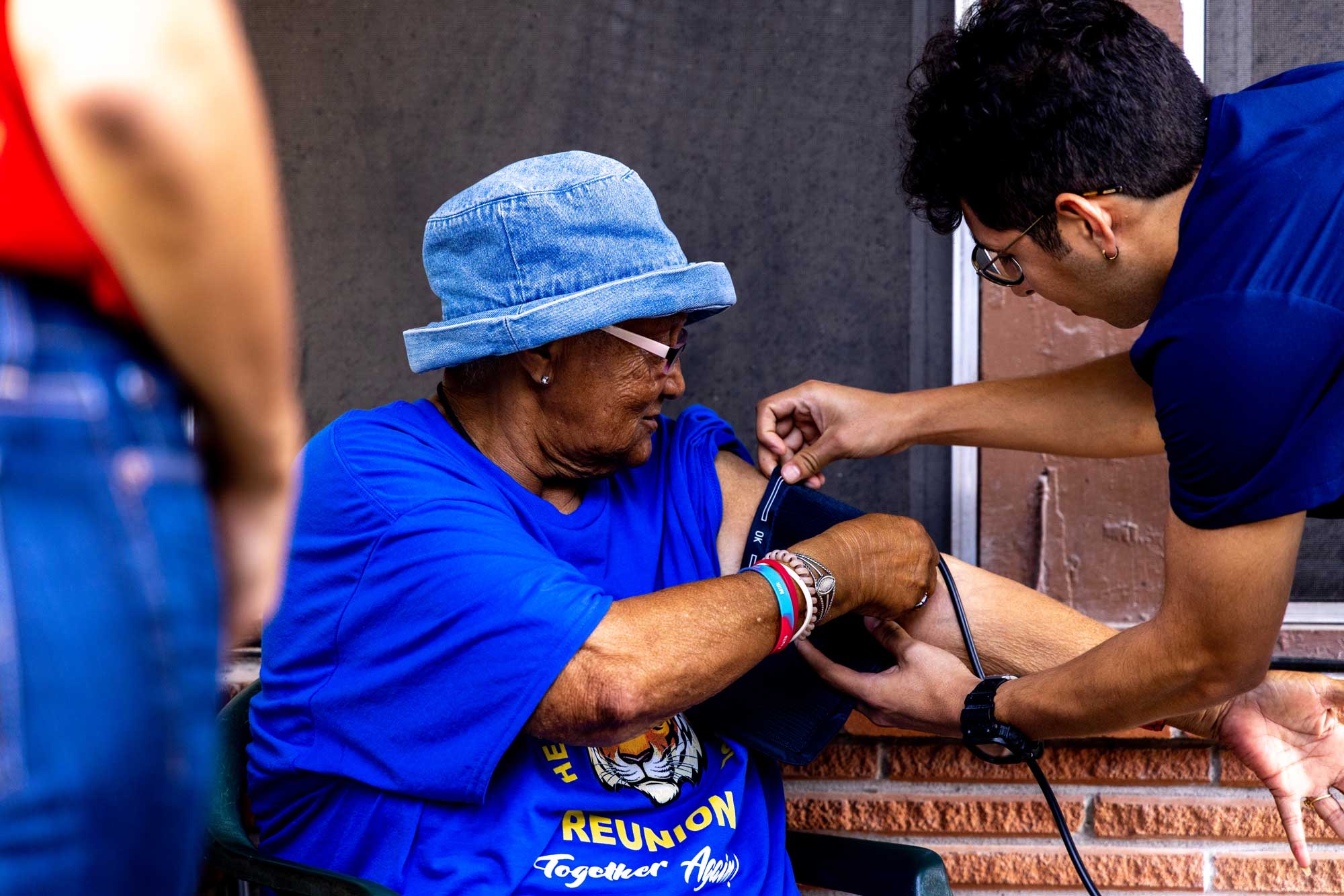
Other house calls may involve more obscure interventions, less medical but just as relevant — for example, checking a family’s refrigerator or air conditioning, making calls to find providers within range or secure financial assistance, writing grocery lists or checklists. There are a million aspects of patients’ lives that affect their health — that they would never think to mention to a doctor in a hurried visit to the clinic, but that Ward and her peers are being trained to identify. They are learning that sometimes even small inputs can have an outsize effect on a person’s health.
“If you take a little bit more time and see where they are first, you get a much better result in the end,” Ward says. “Sometimes when people hear ‘low income,’ they perceive a negative connotation. I grew up in those communities [in New Orleans], so I don’t view it that way. I feel like the community is full of love, full of support. And people are willing to help other people. Where someone may need assistance with certain things, it doesn’t take away from their humanity, and it doesn’t take away from their strengths — strengths that sometimes other people may not have.”
The goal of HCC is to improve the lives of people in Houston by empowering them to achieve better health, all while training up the next generation of medical and health professionals who will have a more complete, more nuanced understanding of what it means to be a patient in the U.S.

There was a benefit simply in spending time with a patient in person. Ward got to hear the joy in her client’s voice when she learned she’d be getting glasses, got to witness her excitement at the chance to start making changes.

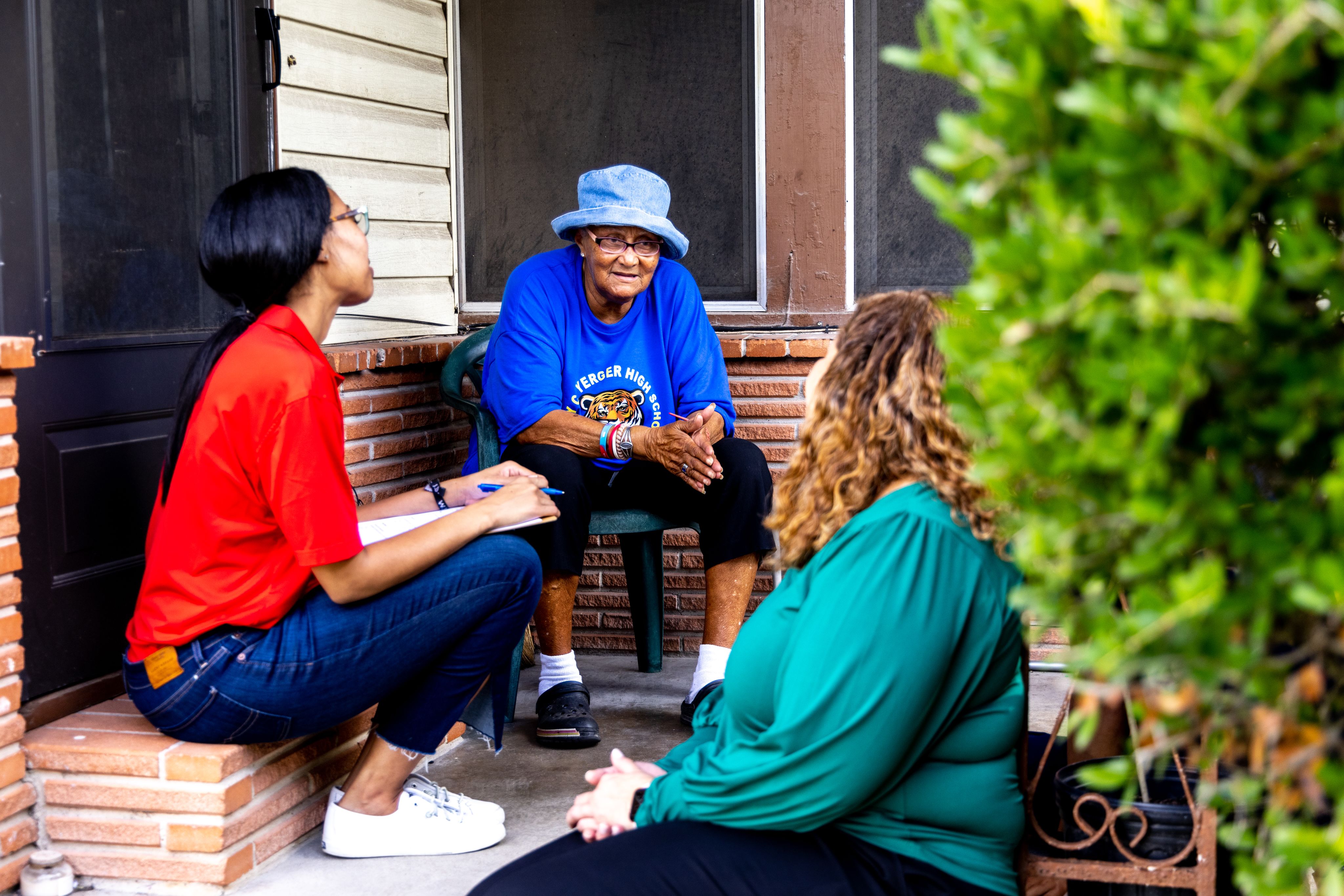
If HCC succeeds, the individuals and families who participate should see better access to health care and better health outcomes. And over time, as they come to know the communities’ needs more intimately, students in the program will be able to better advocate for more holistic changes, whether they continue on to practice in Houston or in other communities across the country.
For Ward, who’d begun her medical schooling during the pandemic, there was a benefit simply in spending time with a patient in person. Ward got to hear the joy in her client’s voice when she learned she’d be getting glasses, got to witness her excitement at the chance to start making changes to her exercise and diet routines.
By spending time in these communities, getting to know the people and the contours of the neighborhoods, students form a more detailed picture of their patients’ lives and situations than a traditional office visit could provide. The collaboration between disciplines also allows these future professionals to understand how their colleagues from other disciplines think and perform in real-life situations, setting them up for greater success in clinical settings one day. They learn, as well, what it’s like to navigate a fragmented, confusing medical system for people who have limited or no insurance and who face a number of other barriers to accessing health care.
Without this context, medical professionals may dismiss what they perceive as a patient’s apathy toward their own health outcome, not realizing that a patient has dropped off their medication because they can’t afford it, can’t drive to the pharmacy to get it or are having difficulty managing side effects and have no one to consult. HCC is a window for students into just how difficult the health care system is to navigate for the average patient as well as how social challenges affect health.
Add in lack of transportation, lack of providers or sites of care within range of public transportation and covered by insurance, language barriers for immigrant populations and medical bias, and many patients are left feeling like they have no recourse to solve their health issues. They may not even know why they are having health issues — the culprit may be something environmental, such as water or air quality, pollutants in the home, a food desert or lack of walkability in their neighborhood. This is what social health is all about — and what HCC sets out to fix.
“[We’re looking at] things you would only observe or know about if you’re at the home. But they might need to be addressed at a higher level than just individually.”

The University of Houston and its resources could prove a key component in improving health outcomes. UH has opened three new health clinics in the Houston region since September 2021, including the Family Care Center. Located on campus and staffed by faculty physicians from the medical school, patients can receive care regardless of their ability to pay.
But Houston remains a city in which geography, for many residents, is destiny. In 2019, the city’s health department issued a report on health disparity that found people in wealthier ZIP codes have life expectancies a full 10 years longer than people in the poorest ZIP codes. There is much work to be done.
For HCC participants, that work starts with addressing people’s real-world problems — which, for those who lack sufficient insurance coverage, often come down to dental and vision care, says Dr. Claudine Johnson, the course director who oversees the program and a clinical associate professor in the Department of Clinical Sciences at the Fertitta Family College of Medicine.
But the community’s health needs are wider even than those that sufficient medical insurance could cover. “Food assistance, rental assistance, access to primary care and other medical specialties, transportation assistance,” Johnson says — “those are probably the biggest ones. Some people work multiple jobs. Or they’re not able to take off in the middle of the day to go to a medical appointment, because they will lose income if they are away from work. And for some of the adults, I will say that they will make sure that their children get to the pediatrician, but they may skip their own health care visits.”
Even when patients do make it to a clinic, care providers may not come to understand a person’s full situation. Those visits may be rushed or impersonal. Or a person may not share seemingly mundane details of their lives, because they don’t see a connection between an environmental issue and their health, Johnson explains.
A diabetic patient may not disclose that their refrigerator is broken, which would prevent her from being able to store insulin. A man with emphysema may make return visits to the emergency room in the summer without explaining that his air conditioning is broken, leaving him in heat that makes breathing difficult. A mother could bring an asthmatic child to the hospital in acute crisis — one that will simply recur so long as unchecked roaches and mice continue leaving waste in their apartment. A patient without a car may have no practical way to pick up prescriptions.
Any medical treatment in these situations is undermined by the circumstances of people’s lives. HCC tries to put students in a position to understand that full reality. As more and more student teams fan out in their neighborhoods, they may be able to notice patterns that, Johnson hopes, could lead to higher-level efforts to address systemic problems.
On one home visit Johnson made, she and an HCC team met with an older woman whose yard had poor drainage that left standing water around her home. That, in turn, brought mosquitos. As a result, she stayed inside more, alone. Isolation might not in itself warrant a hospital visit, but knowing how important it is for people’s health to be able to go outside and socialize, the team started thinking along different dimensions. Could they call the city to spray for mosquitos? Could they contact a city council member to address the poor drainage? And could they eventually make informed recommendations to policymakers to improve infrastructure, pollution levels, access to grocery stores, public transit or other larger-scale solutions?
“[We’re looking at] things you would only observe or know about if you’re at the home,” Johnson says. “But they might need to be addressed at a higher level than just individually.”
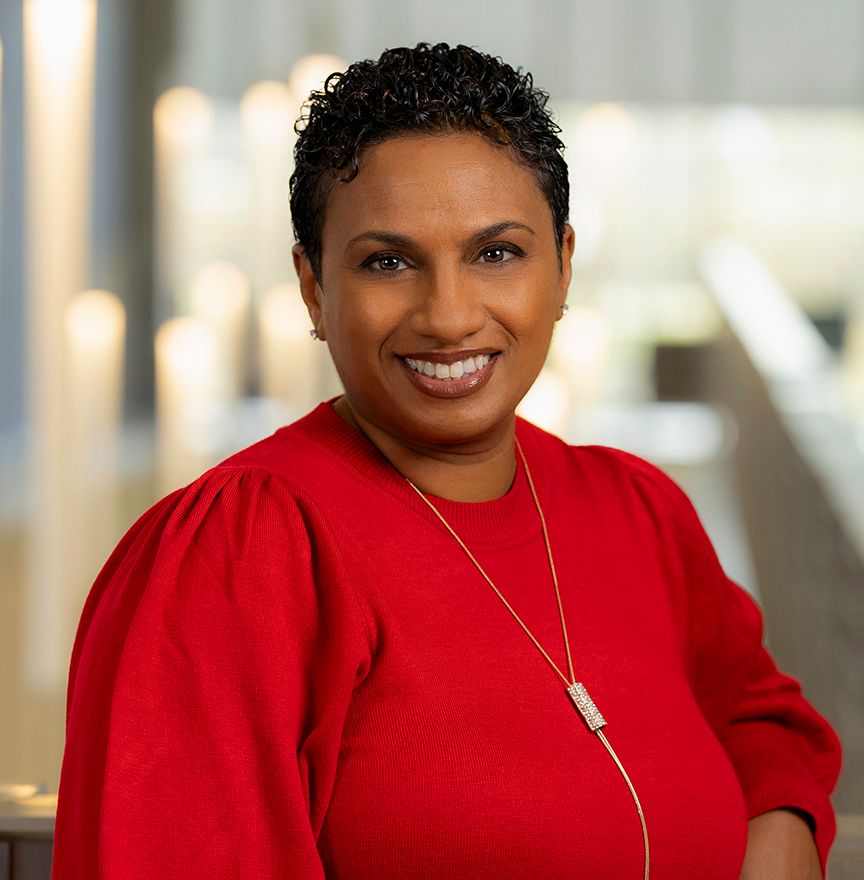
Dr. Claudine Johnson is the course director of the Household-Centered Care program.
Dr. Claudine Johnson is the course director of the Household-Centered Care program.
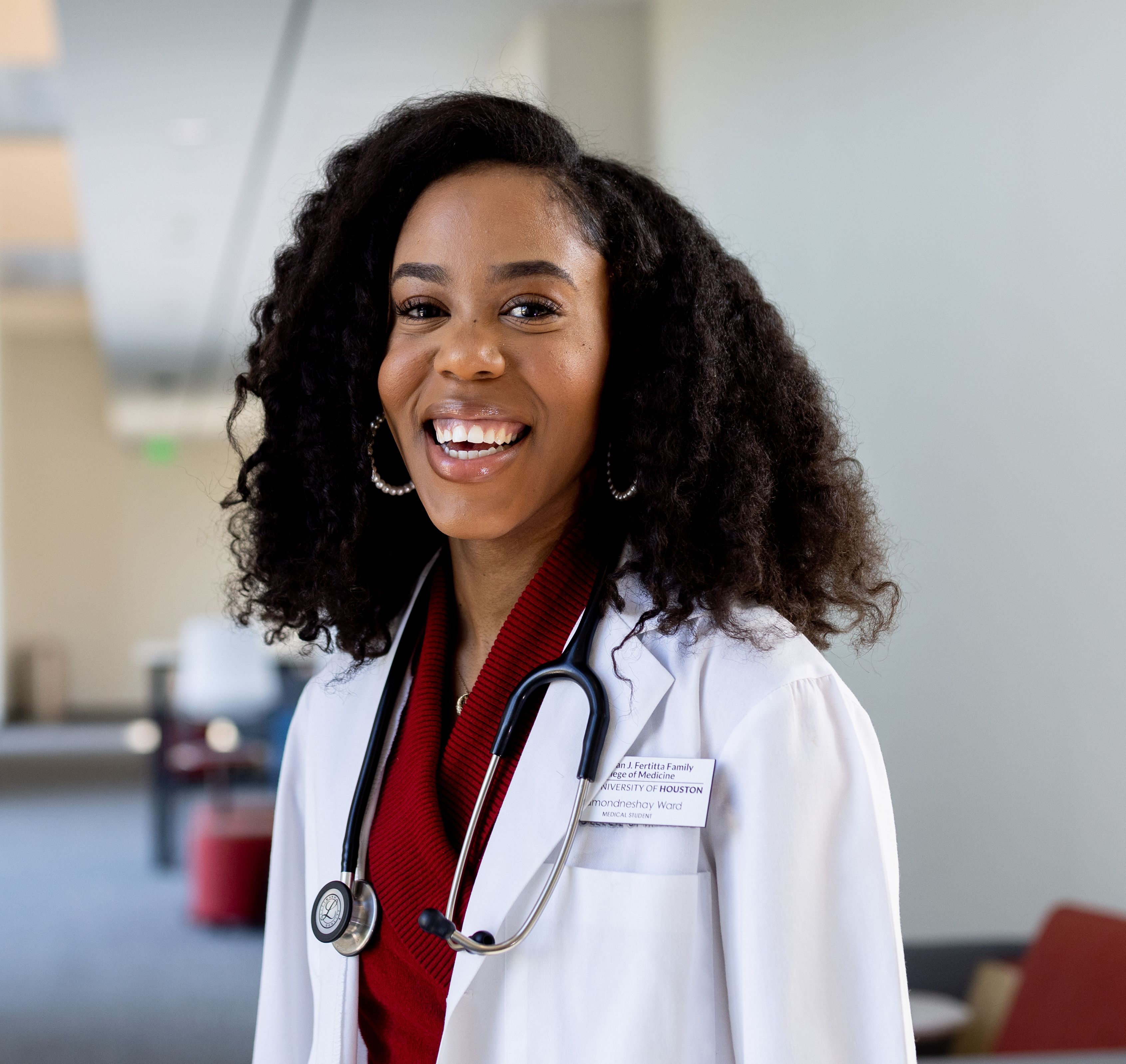
HCC’s success will mean that individuals and families who participate should see better access to health care and better health outcomes.
HCC’s success will mean that individuals and families who participate should see better access to health care and better health outcomes.
The University of Houston and its resources could prove a key component in improving health outcomes. UH has opened three new health clinics in the Houston region since September 2021, including the Family Care Center. Located on campus and staffed by faculty physicians from the medical school, patients can receive care regardless of their ability to pay.
But Houston remains a city in which geography, for many residents, is destiny. In 2019, the city’s health department issued a report on health disparity that found people in wealthier ZIP codes have life expectancies a full 10 years longer than people in the poorest ZIP codes. There is much work to be done.
For HCC participants, that work starts with addressing people’s real-world problems — which, for those who lack sufficient insurance coverage, often come down to dental and vision care, says Dr. Claudine Johnson, the course director who oversees the program and a clinical associate professor in the Department of Clinical Sciences at the Fertitta Family College of Medicine.

Dr. Claudine Johnson is the course director of the Household-Centered Care program.
Dr. Claudine Johnson is the course director of the Household-Centered Care program.
But the community’s health needs are wider even than those that sufficient medical insurance could cover. “Food assistance, rental assistance, access to primary care and other medical specialties, transportation assistance,” Johnson says — “those are probably the biggest ones. Some people work multiple jobs. Or they’re not able to take off in the middle of the day to go to a medical appointment, because they will lose income if they are away from work. And for some of the adults, I will say that they will make sure that their children get to the pediatrician, but they may skip their own health care visits.”
Even when patients do make it to a clinic, care providers may not come to understand a person’s full situation. Those visits may be rushed or impersonal. Or a person may not share seemingly mundane details of their lives, because they don’t see a connection between an environmental issue and their health, Johnson explains.
A diabetic patient may not disclose that their refrigerator is broken, which would prevent her from being able to store insulin. A man with emphysema may make return visits to the emergency room in the summer without explaining that his air conditioning is broken, leaving him in heat that makes breathing difficult. A mother could bring an asthmatic child to the hospital in acute crisis — one that will simply recur so long as unchecked roaches and mice continue leaving waste in their apartment. A patient without a car may have no practical way to pick up prescriptions.
Any medical treatment in these situations is undermined by the circumstances of people’s lives. HCC tries to put students in a position to understand that full reality. As more and more student teams fan out in their neighborhoods, they may be able to notice patterns that, Johnson hopes, could lead to higher-level efforts to address systemic problems.

HCC’s success will mean that individuals and families who participate should see better access to health care and better health outcomes.
HCC’s success will mean that individuals and families who participate should see better access to health care and better health outcomes.
On one home visit Johnson made, she and an HCC team met with an older woman whose yard had poor drainage that left standing water around her home. That, in turn, brought mosquitos. As a result, she stayed inside more, alone. Isolation might not in itself warrant a hospital visit, but knowing how important it is for people’s health to be able to go outside and socialize, the team started thinking along different dimensions. Could they call the city to spray for mosquitos? Could they contact a city council member to address the poor drainage? And could they eventually make informed recommendations to policymakers to improve infrastructure, pollution levels, access to grocery stores, public transit or other larger-scale solutions?
“[We’re looking at] things you would only observe or know about if you’re at the home,” Johnson says. “But they might need to be addressed at a higher level than just individually.”
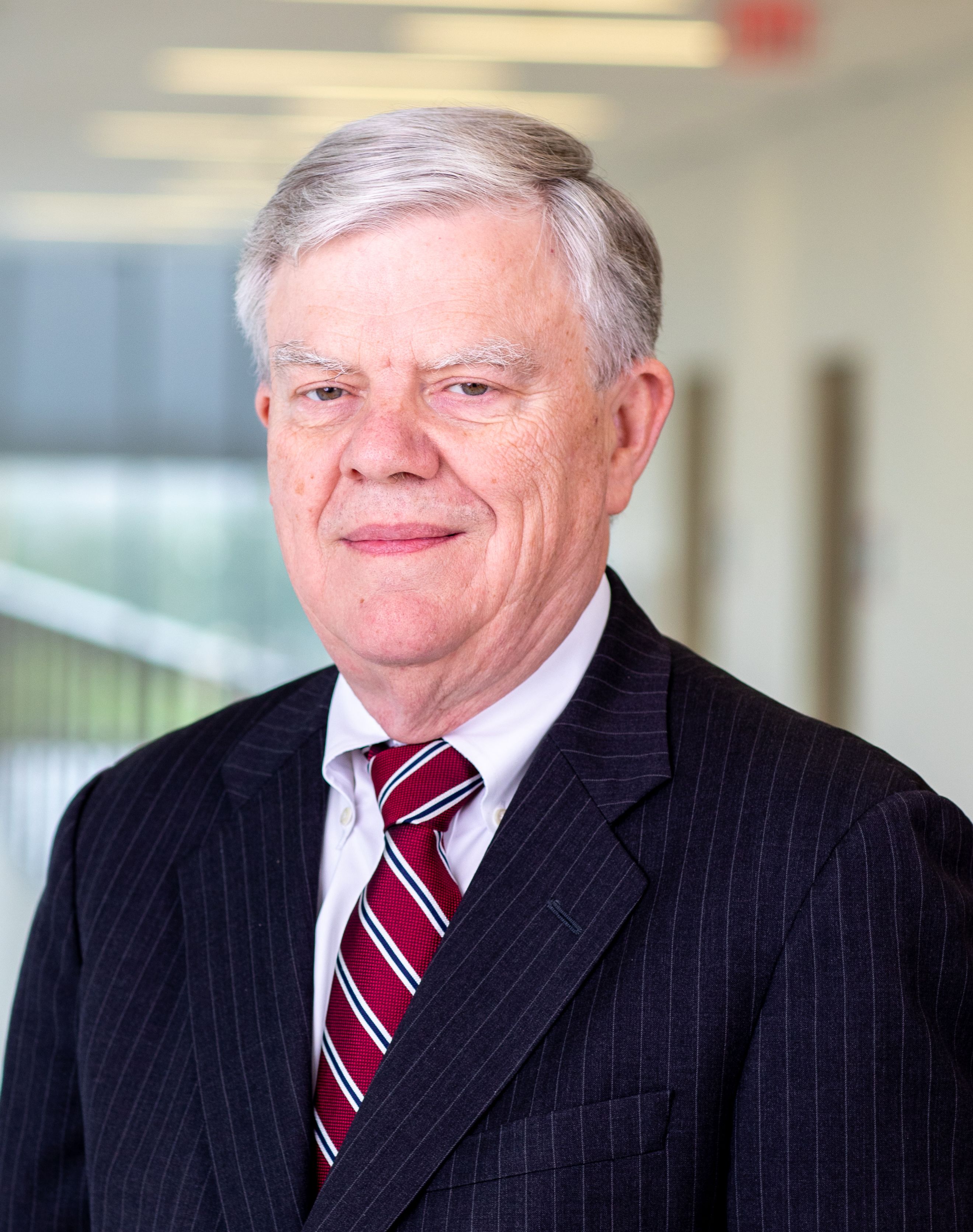
Dr. Stephen J. Spann is the founding dean of the Tilman J. Fertitta Family College of Medicine at the University of Houston.
Dr. Stephen J. Spann is the founding dean of the Tilman J. Fertitta Family College of Medicine at the University of Houston.
Forty years ago, when Dr. Stephen J. Spann was a family physician in rural North Carolina, he made a point of making a home call to meet with the family of every baby he delivered or took care of in the hospital newborn nursery. Two weeks after the birth, he would arrive, often down some remote county backroad, to check the infant, to talk the family through the best ways to care for the baby and to get a sense of the environment where the child would grow up.
Now the founding dean of the Fertitta Family College of Medicine and the vice president for medical affairs at the University of Houston, Spann speaks about those visits with a note of genuine nostalgia for the insights he could glean from a half-hour spent sitting on a family’s living room floor, answering questions and giving guidance.
“You can learn more in a house call than you can in 10 office visits,” he says. “Man, there was no substitute. You just learned so much about context, about social determinants, about family structure and function in those visits. And in the long run, it saves you time, and it helps you take better care of people.”
“You can learn more in a house call than you can in 10 office visits.”
To Spann, HCC is a venue for his medical students to understand the value of that in-home context. Some 80% of preventable disease and death in the U.S. is related to what the medical community calls social determinants of health, or SDOH. Those include circumstances such as income, education, insurance, employment, proximity to crime and access to quality housing, nutritious food and transportation. They also include behaviors such as exercise, diet, drinking, smoking, worship and interpersonal relationships.
The U.S. Office of Disease Prevention and Health Promotion has made improving SDOH a pillar of its national Healthy People 2030 public health initiative, which aims to measure and boost the social, physical, and economic environments that lead to healthier lives. A well-worn saying by now in public health circles holds that, in the U.S., your ZIP code is a better predictor of your lifespan than your genetic code.
Understanding and intervening to improve adverse social determinants of health upstream, before they begin to cause disease, can result in better downstream health and reduced costs of care, Spann says. “The relationship between doctor and patient is a powerful diagnostic and therapeutic tool,” Spann explains. “Carefully listening to the patient’s history and understanding the context of the illness can decrease the number of diagnostic tests needed and referrals to other specialists.”
Key to this equation is the proven connection between a patient’s trust in their physician and their resulting health outcomes. (The placebo effect alone explains part of that benefit — patients tend to see some health improvement when they have faith in the treatment, no matter what that treatment is.) Physicians who connect empathetically with their patients not only see better outcomes but are also happier and more satisfied in their careers.
This approach is core to the philosophy at the Fertitta Family College of Medicine, which gifts incoming students a copy of the 2019 book “Compassionomics: The Revolutionary Scientific Evidence That Caring Makes a Difference,” by Stephen Trzeciak and Anthony Mazzarelli, two physicians and educators.
Forty years ago, when Dr. Stephen J. Spann was a family physician in rural North Carolina, he made a point of making a home call to meet with the family of every baby he delivered or took care of in the hospital newborn nursery. Two weeks after the birth, he would arrive, often down some remote county backroad, to check the infant, to talk the family through the best ways to care for the baby and to get a sense of the environment where the child would grow up.

Dr. Stephen J. Spann is the founding dean of the Tilman J. Fertitta Family College of Medicine at the University of Houston.
Dr. Stephen J. Spann is the founding dean of the Tilman J. Fertitta Family College of Medicine at the University of Houston.
Now the founding dean of the Fertitta Family College of Medicine and the vice president for medical affairs at the University of Houston, Spann speaks about those visits with a note of genuine nostalgia for the insights he could glean from a half-hour spent sitting on a family’s living room floor, answering questions and giving guidance.
“You can learn more in a house call than you can in 10 office visits,” he says. “Man, there was no substitute. You just learned so much about context, about social determinants, about family structure and function in those visits. And in the long run, it saves you time, and it helps you take better care of people.”
“You can learn more in a house call than you can in 10 office visits.”
To Spann, HCC is a venue for his medical students to understand the value of that in-home context. Some 80% of preventable disease and death in the U.S. is related to what the medical community calls social determinants of health, or SDOH. Those include circumstances such as income, education, insurance, employment, proximity to crime and access to quality housing, nutritious food and transportation. They also include behaviors such as exercise, diet, drinking, smoking, worship and interpersonal relationships.
The U.S. Office of Disease Prevention and Health Promotion has made improving SDOH a pillar of its national Healthy People 2030 public health initiative, which aims to measure and boost the social, physical, and economic environments that lead to healthier lives. A well-worn saying by now in public health circles holds that, in the U.S., your ZIP code is a better predictor of your lifespan than your genetic code.
Understanding and intervening to improve adverse social determinants of health upstream, before they begin to cause disease, can result in better downstream health and reduced costs of care, Spann says. “The relationship between doctor and patient is a powerful diagnostic and therapeutic tool,” Spann explains. “Carefully listening to the patient’s history and understanding the context of the illness can decrease the number of diagnostic tests needed and referrals to other specialists.”
Key to this equation is the proven connection between a patient’s trust in their physician and their resulting health outcomes. (The placebo effect alone explains part of that benefit — patients tend to see some health improvement when they have faith in the treatment, no matter what that treatment is.) Physicians who connect empathetically with their patients not only see better outcomes but are also happier and more satisfied in their careers.
This approach is core to the philosophy at the Fertitta Family College of Medicine, which gifts incoming students a copy of the 2019 book “Compassionomics: The Revolutionary Scientific Evidence That Caring Makes a Difference,” by Stephen Trzeciak and Anthony Mazzarelli, two physicians and educators.
In the U.S., your ZIP code is a better predictor
of your lifespan than your genetic code.

In a health care system as complex as the one the U.S. has spawned, training effective doctors means teaching empathetic approaches to understanding a patient’s full lived experience. As a medical educator, Spann values the potential HCC offers for putting doctors in the position of the people they’re trying to care for: assessing how to do the most for someone from where they really are, working with a broader team and coming up with the best solution they can.
“Our mission statement is that we’re socially accountable for improving health and health care in Greater Houston, Texas and beyond,” Spann says. “We’re about improving the health of the population. And there’s no better way to learn it than to see it and experience it, to talk to people and understand their struggles and their frustrations. And there’s just no substitute for seeing it in the field, in vivo, in reality, and struggling with that.”
Household-Centered Care, still in its opening few years, has a long way to go before anyone will know what it might achieve once the longitudinal effects kick in. This year, a total of 228 students are participating, with undergraduate and graduate social work students and community health workers conducting the in-home visits. The program launched with 30 medical students in 2020 — an inopportune moment, due to COVID-19, to try to send students to people’s homes. Now in its third year, the program includes 60 teams, on track to have 120 teams per year. When it’s fully rolled out, perhaps as soon as 2027, 240 total three- or four-student teams will be working in the community.
Once hundreds of students have completed the program and become nurses, doctors and social workers in Houston and elsewhere, what will they accomplish? And how will families and communities fare over time, once they’ve had access to experts and resources that previously might have been out of reach?
Ward, the third-year medical student, is for her part thinking big by doing the small things. She says the program is teaching her that, as she enters one of the most respected professions in the world, she will accomplish the most by remaining humble.
“I love to work with people — not, you know, making decisions for them, but actually collaborating with them for a common health goal,” she says. “And it’s given me more tools in my toolkit to be able to do that. It’s also been a great reminder to check yourself, to empower people and not ever feel like you’re the savior. You’re there to serve.”

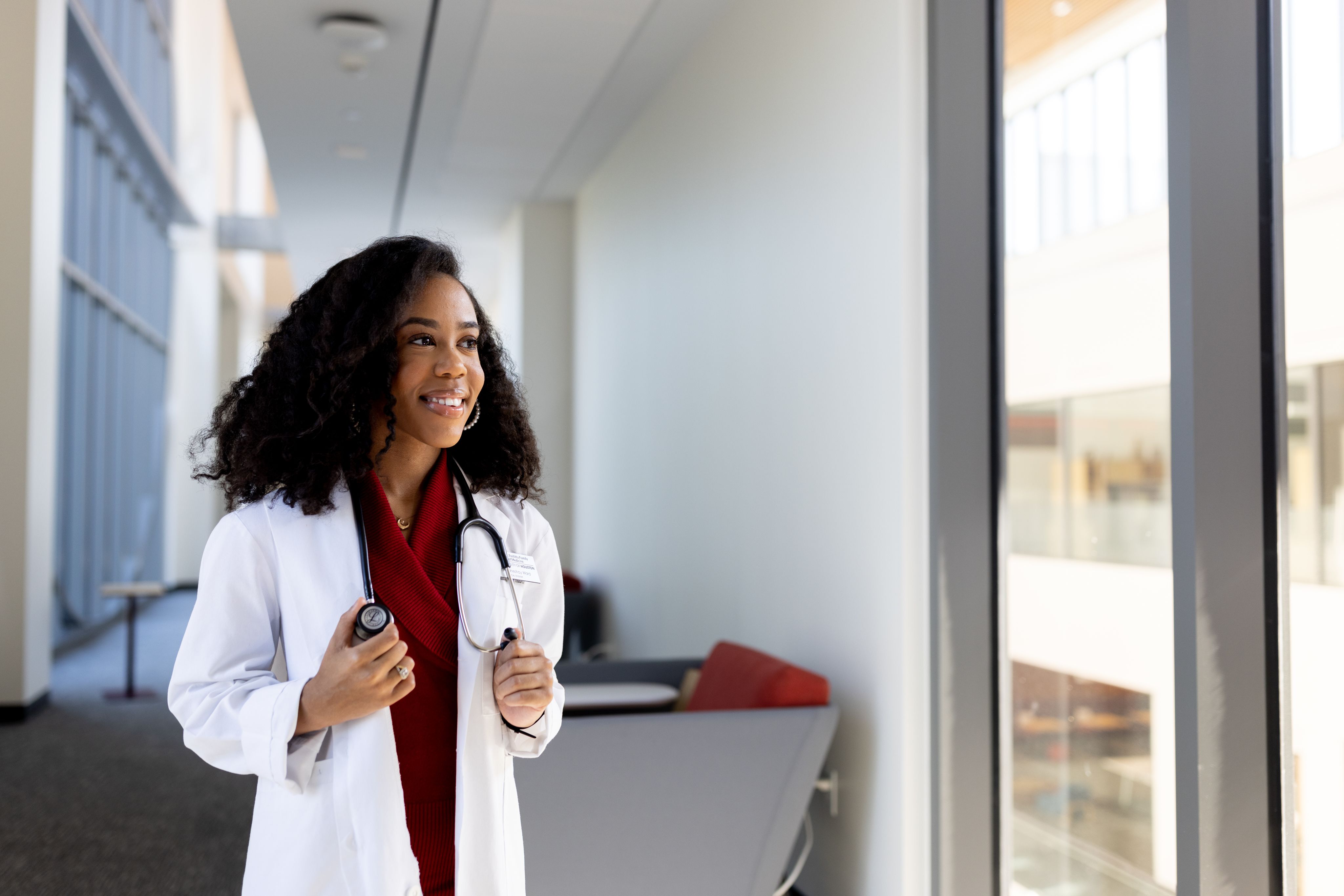
“I love to work with people — not making decisions for them, but actually collaborating with them for a common health goal.”


